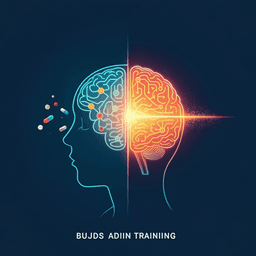
Psychology
Cognitive stimulation in socioeconomically disadvantaged children with neurodevelopmental disorders: a case series
P. Rodríguez-prieto, N. A. Giral-oliveros, et al.
This study by Pablo Rodríguez-Prieto, Nathalia Alejandra Giral-Oliveros, Ian Craig Simpson, and Joaquín A. Ibáñez-Alfonso reveals how a comprehensive cognitive stimulation program significantly enhances executive functions and social cognition in Guatemalan children with neurodevelopmental disorders, outperforming improvements seen in neurotypical peers. Uncover how tailored interventions can make a real difference in the lives of children facing challenges.
~3 min • Beginner • English
Related Publications
Explore these studies to deepen your understanding of the subject.







